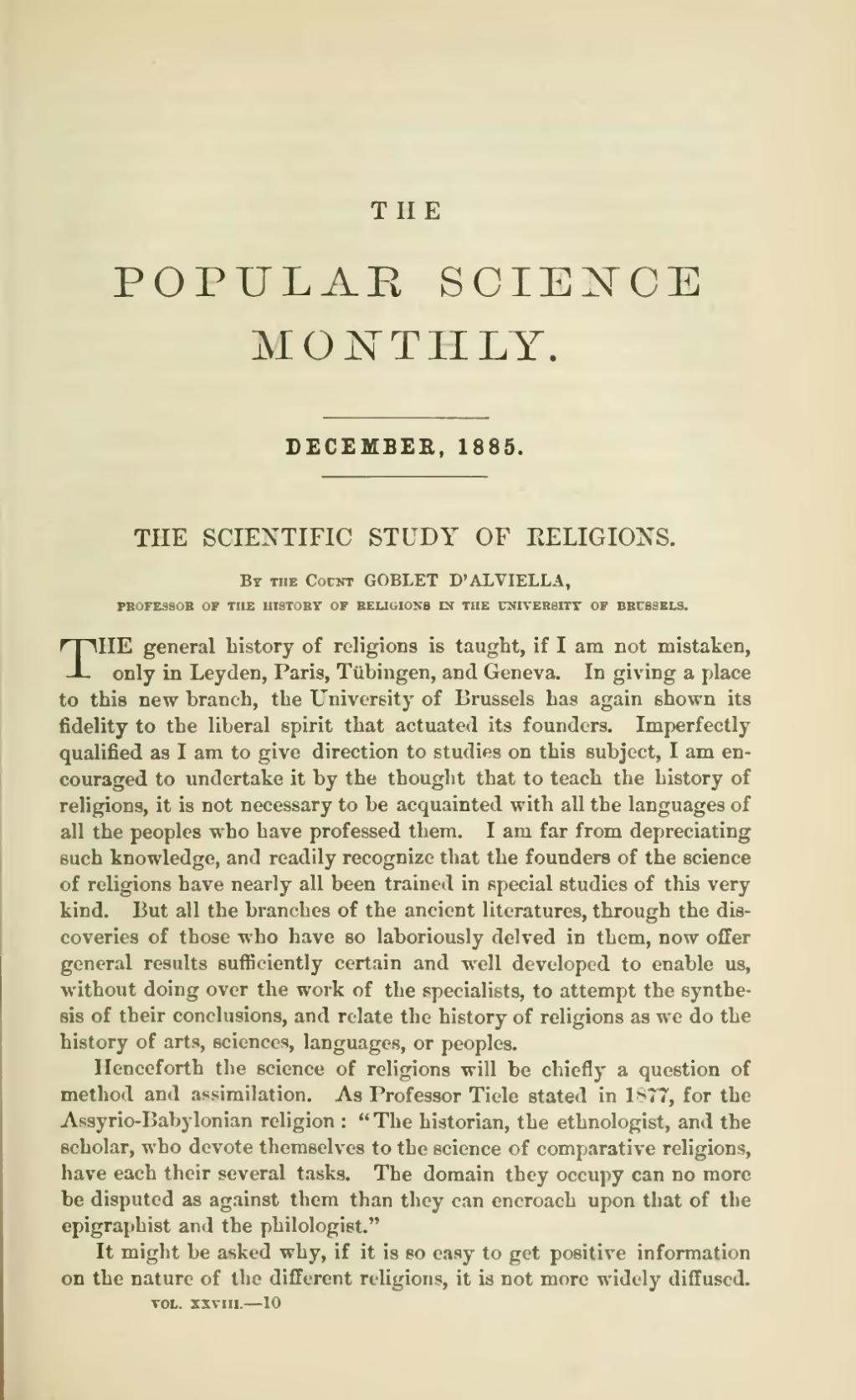THE
POPULAR SCIENCE
MONTHLY.
DECEMBER, 1885.
| THE SCIENTIFIC STUDY OF RELIGIONS. |
By the Count GOBLET D'ALVIELLA,
PROFESSOR OF THE HISTORY OF RELIGIONS IN THE UNIVERSITY OF BRUSSELS.
THE general history of religions is taught, if I am not mistaken, only in Leyden, Paris, Tübingen, and Geneva. In giving a place to this new branch, the University of Brussels has again shown its fidelity to the liberal spirit that actuated its founders. Imperfectly qualified as I am to give direction to studies on this subject, I am encouraged to undertake it by the thought that to teach the history of religions, it is not necessary to be acquainted, with all the languages of all the peoples who have professed them. I am far from depreciating such knowledge, and readily recognize that the founders of the science of religions have nearly all been trained in special studies of this very kind. But all the branches of the ancient literatures, through the discoveries of those who have so laboriously delved in them, now offer general results sufficiently certain and well developed to enable us, without doing over the work of the specialists, to attempt the synthesis of their conclusions, and relate the history of religions as we do the history of arts, sciences, languages, or peoples.
Henceforth the science of religions will be chiefly a question of method and assimilation. As Professor Tiele stated in 1877, for the Assyrio-Babylonian religion: "The historian, the ethnologist, and the scholar, who devote themselves to the science of comparative religions, have each their several tasks. The domain they occupy can no more be disputed as against them than they can encroach upon that of the epigraphist and the philologist."
It might be asked why, if it is so easy to get positive information on the nature of the different religions, it is not more widely diffused.
